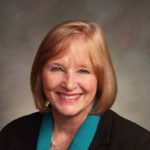PLF files brief in Colorado Taxpayer’s Bill of Rights case
The Colorado Department of State requires companies to pay a business and licensing charge for filing various statutorily mandated corporate documents. The Department considers this charge to be a fee. But most of the money raised from the charge is not used to defray the cost of providing the business and licensing services, the classic purpose of a fee. The lion’s share of the business and licensing charges go to the Department’s Cash Fund, and less than 15% of the Fund is used to defray the cost of operating the Business and Licensing Division. Because most of the money raised from the business and licensing charge is used to provide the Department of State’s general services, it has all of the hallmarks of a tax, and should be labeled as such.
Colorado courts examine three factors to determine whether a charge is a tax or fee: (1) the language of the enabling statute; (2) the primary purpose for which the money is raised; and (3) whether the primary purpose of the charge is to defray the cost of services for those who must pay it. The District Court of Denver concluded that while the first two factors support characterizing the business and licensing charge as a fee, the third factor did not because the primary purpose was not to defray the cost of providing business and licensing services. Unfortunately, the court did not explain how it would consider the factors in this balancing test, instead concluding that TABOR did not even apply to the business and licensing charge.
PLF’s brief raises two points. First, we argue that Colorado courts should apply a presumption that TABOR applies to all charges. Colorado voters made it clear that they wanted to limit government growth when they enacted TABOR. Colorado Courts would give effect to the Colorado voters intent by applying a presumption that TABOR applies. Second, we suggest that Colorado courts follow the footsteps of other state courts in conducting the balancing test that determines whether a charge is a tax or fee, by giving stronger consideration to the third factor—whether the charge is meant to defray the cost of providing a service to those who must pay it—and de-emphasizing the first factor which considers the label given to the charge. Indeed, if Colorado courts give too much weight to the government’s characterization, governments will have a perverse incentive to mislabel charges to avoid TABOR’s requirements. Under this test, the business and licensing charge is clearly a tax. Thus, the charge would illegal because it was not submitted to the voters.





DENVER (AP) — When Colorado lawmakers convened for this year’s legislative session, both parties declared the improvement of the state’s 1950s-designed road network a top priority. Four months later and facing a midnight Wednesday deadline to pass legislation, they’ve yet to deliver.